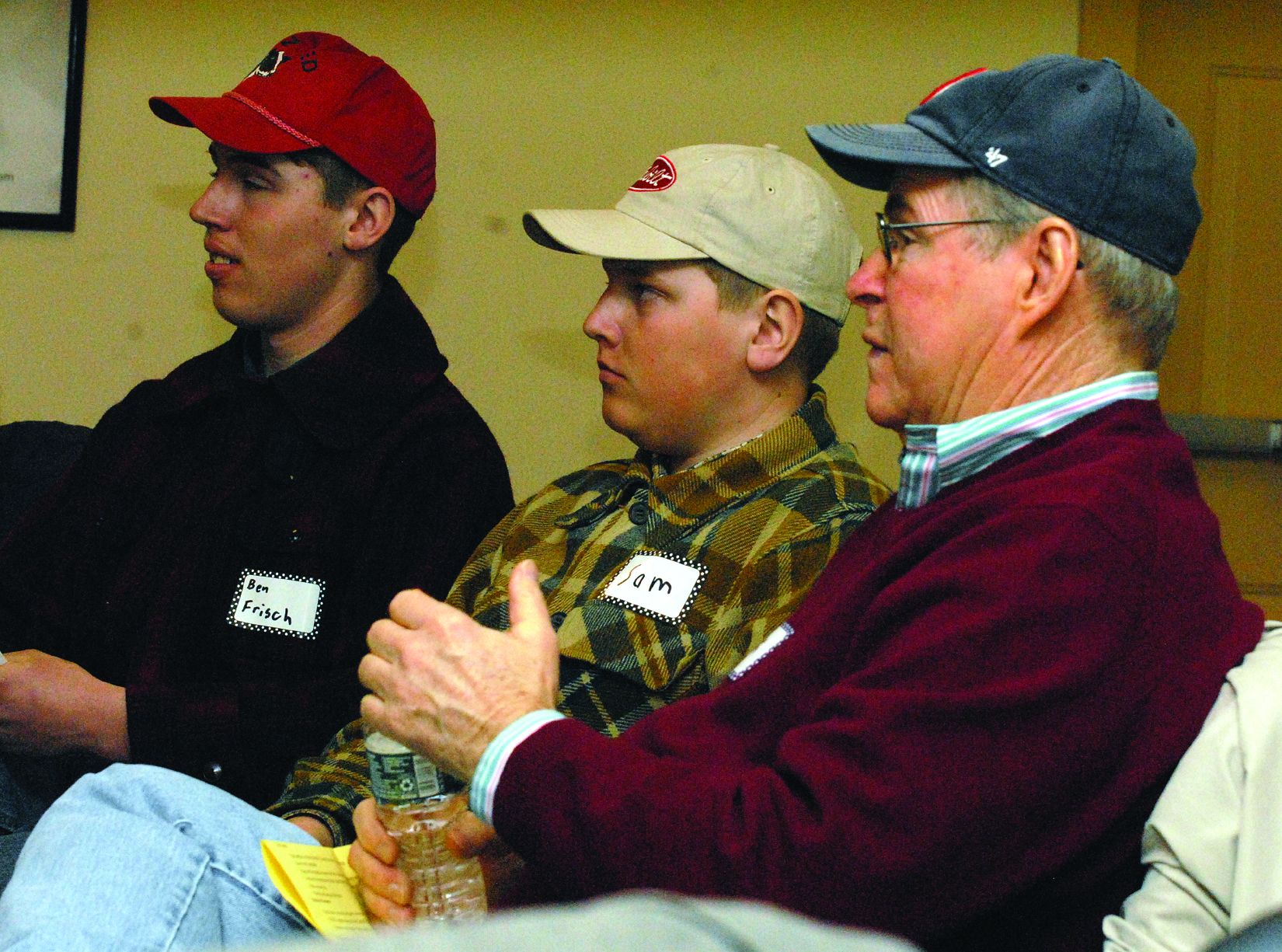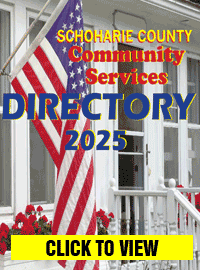Subscriptions
Menu
Advertisements
Solar, influencing policy Ag Networking #1 topics
4/12/2024 |
By Patsy Nicosia |

Equitable solar and influencing state farm policy were among the topics at Schoharie County’s first Agricultural Issues Networking event, held Saturday in Carlisle.
The second is set for this Saturday, April 13, 1pm at the Middleburgh Reformed Church—and they’re likely something that will continue, maybe at the Cobleskill Fair, said Steve Smith, Schoharie County Farm Bureau president and a state director.
Along with SCFB, Cornell Cooperative of Schoharie and Otsego Counties is also a sponsor of the networking events.
More than a dozen farmers and those interested in farming turned out in Carlisle with some planning to make this Saturday’s in Middleburgh as well.
“I was glad that people shared their perspectives and that we touched on action items,” Mr. Smith said afterwards.
“From the Farm Bureau perspective, I continue to have faith that engaging the residents and the representatives is critical. When a resident comes early to listen in, that means they got the message and they care.”
With its impact on agriculture and farmland, it’s no surprise that the first answer to Mr. Smith’s question “So what do you want to talk about?” was solar.
Lenny Prezorski of Cold Spring Farm in Lawyersville predicted that the state’s focus on solar and its solar policies “will be the death of agriculture.”
“We need diesel, we need gas. The current state leadership is against fossil fuel,” Mr. Prezorski said, “but the current policy is destined to fail. We don’t have the transmission lines, it’s eating up farmland…
“We don’t need the government banning what we can and can’t do. We need them to help us.”
Which might even mean…solar.
Jerry Hughes, who has a farm on Dow Street in Cobleskill, said he’s on the fence about solar.
“Don’t take away the right of farmers to do what they want to do on their own land,” he said. “I don’t want to give up my rights…It’s my property; there are already enough regulations. Be careful about a knee-jerk reaction.”
Mr. Hughes said he’s been approached by two different solar companies, both offering him far more than what he paid for his land—the old John Dow Farm #1.
Agreed, said Mr. Prezorski.
“We’ve already lost too many of our rights. We don’t even have the right to assess” solar projects, Mr. Prezorski said.
“It pits us against each other.”
Assemblyman Chris Taggue said he’s not against solar either—but if the state is going to subsidize solar developers, he said it shouldn’t have a problem also subsidizing farmers.
“Beware snake oil salesmen,” he said, noting that when he was Schoharie supervisor, they were approached by solar companies.
“We had a few locations we thought it would work,” he said. “But they said they were too far away from the substation…”
It doesn’t make sense to take productive farmland for solar, Mr. Smith said.
Instead it might be worth looking at what can be grown or grazed under solar panels on less productive land.
Esperance Supervisor and maple producer Earl Van Wormer said he knows firsthand the importance of reaching out to elected officials—even at the state level.
He said former state Senator Jim Seward once told him it doesn’t take a 100 phone calls on an issue to convince him it’s important, but just seven from different constituents.
“First of all, it doesn’t take me seven…” said Assemblyman Tague.
Which is why these discussions are so important, said CCE Executive Director Liz Callahan.
“It’s a change for people to articulate their concerns and inform policy,” she said. “We want this to come out through these conversations.”







